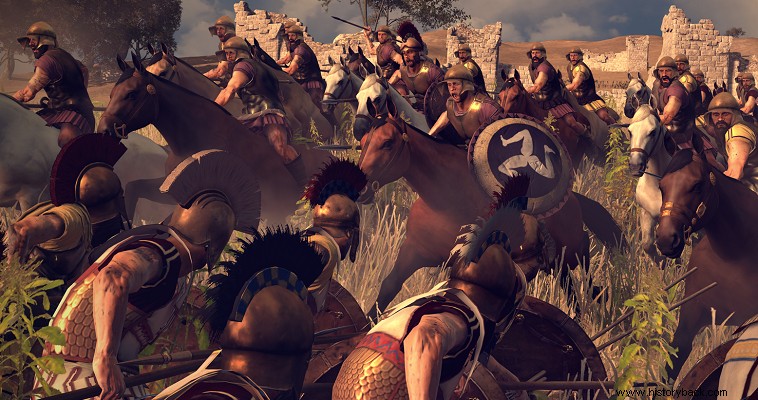
The city of Spartolos was the capital of the Vottians. The city was located in western Halkidiki, near Olynthos. It was part of the Athenian Alliance until the outbreak of the Peloponnesian War (431 BC) when it rebelled and left the alliance.
In 429 BC an Athenian force of about 4,000 men under general Xenophon (synonymous simply of the well-known general and historian), son of the tragic poet Euripides, moved against the city. The Athenians arrived outside the city and after first destroying the crops, began negotiations with the pro-Athenian portion inside the city.
However, the opposing party prevailed and instead of surrendering the city, as the Athenians expected, the inhabitants of Spartolo asked for the help of Olynthos . A strong force was gathered from Spartolo and other regions of Chalkidiki to face the Athenians.
The two opposing forces clashed outside the city before the men of Olynthos arrived. The Athenians were more experienced and their hoplites attacked and forced the opposing hoplites of the Chalcidian center and right flank to retreat with significant losses. The left flank of the army of the allies of Halkidiki was made up of experienced Peloponnesians who, seeing their allies retreating, also retreated to avoid being surrounded.
The vanquished fled to the city and the Athenians were complacent considering themselves victorious . However, their opponents had a different opinion and when finally the allies of Olynthos arrived, now numbering 5,000 infantry and 400 cavalry they attacked with a new tactic against the Athenians, using the peltasts and their light divisions to overwhelm the opponents with javelins.
Under the rain of missiles, the Athenians began to retreat. Then the allied cavalry intervened, approaching the Athenians and attacking them from safety with javelins. When the foot Athenians attempted to counterattack the horsemen simply retreated thanks to the speed of their horses.
This game of cat and mouse continued for some time resulting in irritation and fatigue of the Athenians. The men in the rear ranks of the Athenian phalanx began to abandon their lines. Soon gaps were created in the Athenian line-up which the allied cavalry and light infantry took advantage of, cutting down many Athenians, including General Xenophon.
Over 430 Athenians fell in the battle against 315 allies. Most of the allied dead fell in the initial phase of the battle.
The battle at Spartolo escaped from the trivialities of the armed conflict. It was not judged by the "clang of arms", but by the "fire", i.e. the projectiles of the light units of the allies and of the cavalry, which was the weapon that gave victory to the opponents of the Athenians.
